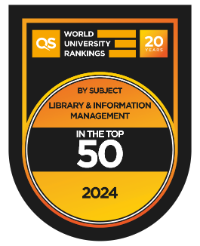Some Digital & AI Policy Programmes have online learning options.
With support from Microsoft Ireland, UCD School of Information and Communication Studies has established our Digital & AI Policy Programmes with the goal of building digital policy training and capability.
These are designed to offer graduates the opportunity to study some of the core topical, theoretical, and methodological issues that arise in all dimensions of life. We investigate the institutional and public policy dimensions of the prevalence of digital technologies, infrastructures, production, capture, and analysis.
Our programmes also study the underlying social conditions (economic, political, and cultural) that give rise to such technologies and their governance, as well as the multiple public sector and commercial contexts where policy is made and enacted.
In addition to face-to-face environments for our MSc and graduate diploma, we offer online learning options for some programmes.
Choose from:
MSc Digital & AI Policy - Full Time W622 and Part Time W623 options, on campus.
Graduate Diploma Digital & AI Policy - Full-time W624 and Part-Time W625 options, on campus.
Professional Certificate Digital Policy - W569. Online, in the autumn terms, Wednesdays 2pm - 4pm.
For further information contact the Programme Director and the Director for (opens in a new window)UCD Centre for Digital Policy Dr Elizabeth Farries (opens in a new window)elizabeth.farries@ucd.ie


-440x440-396x396.png) continuing professional education, and provide opportunities for active engagement with diverse communities. The MLIS is an in person programme, structured to develop core professional competencies, as well as specialised knowledge and skills for librarians and information professionals. While the programme offers a generalist approach to suit multiple interests and aspirations, it is also possible to tailor learning to more specialised areas for particular career paths.
continuing professional education, and provide opportunities for active engagement with diverse communities. The MLIS is an in person programme, structured to develop core professional competencies, as well as specialised knowledge and skills for librarians and information professionals. While the programme offers a generalist approach to suit multiple interests and aspirations, it is also possible to tailor learning to more specialised areas for particular career paths. 